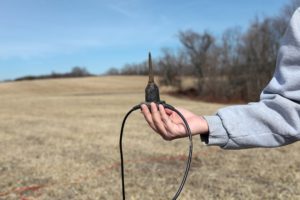All Categories
Featured
Table of Contents
Geophysics Jobs in Woodbridge WA 2022
This work is progressively contracted out, so consultancies supply another source of work. Consultancy companies vary in size, from extremely little business to large multinationals. Some consultancies are rather specialised in using particular geophysical strategies or operating in particular areas, while others provide a more varied variety of services to their clients.
The extraction of gas from land fill sites is another area of employment and this might grow in the future. Exploration companies may undertake work for building and construction companies, public utility, mining companies and ecological agencies, so geophysicists may be used in any of these settings. Other companies include: geological surveysgovernment bodies and agenciesuniversities and research institutes.


Jobs may be noted in the oil and gas sector press. Recruitment is affected by oil cost fluctuations and the level of competition for positions differs depending on this. Professions Days, which cover the complete series of geoscience careers and are normally gone to by a variety of essential industry companies, are run by The Geological Society.
How To Become A Geologist Or Geophysicist in Brentwood Western Australia 2021
Some of the big oil and gas companies offer a full two-year structured training program throughout the breadth of geophysics, including the opportunity to experience work in various groups before specialising in one area. Your training might consist of deal with: existing wellsmagnetic and gravitational potential field data analysisresearchrock analysis. It's more typical for your preliminary training to be supplied on the job.

There might be a probationary period during which you work together with a skilled associate. Competency-based appraisals occur frequently in many companies. In smaller sized companies, and for academic posts, there is not likely to be any official training - you'll be expected to begin work straightaway and get skills as you go along.
If you work for a smaller sized company, you may find that you require to take obligation for setting up and moneying your own advancement and training. If you have a geology degree, membership of The Geological Society can be helpful for networking and for maintaining to date with the industry.
Surveys In Geophysics in Madeley Western Australia 2021
You may likewise find it useful to join the PESGB (The Petroleum Exploration Society of Great Britain, which has a geophysics special interest group. After a probationary period, and once you've acquired some experience, you could progress to senior geophysicist, then team leader and then into a senior function in management.
The ease of movement between roles depends on the business structure. Research study at Masters or Ph, D level in a subject associated to geophysics or geosciences might aid with your career development and development. The employment market within the oil and gas market is extremely reliant on rate and this may affect your opportunities for profession progression.
Not all tasks are dependent on the oil and gas markets. For knowledgeable geophysicists, freelance consultancy provides an excellent route for career advancement. You can likewise specialise in a particular location of geophysics. As a geophysicist, you're likely to have several jobs throughout your working life. Worldwide movement is important for handling peaks and troughs in different countries at various times.
What Does A Geophysicist Do? in Wanneroo Australia 2023
From geophysics, it's possible to concentrate on seismology (finishing more training to become a seismic interpreter) or to move into associated areas such as engineering geology or risk prediction.
Deciding what to study in college is a hard choice. Even if you know that your field of interest depends on science, what program of research study is right for you? If you make the decision to significant in physical and biological sciences and pursue a profession as a geophysicist, you're preparing for an exciting and successful profession.
The first action to achieving your goal of becoming a geophysicist is making a degree. Even for entry-level positions in the field of geoscience, you'll require a bachelor's degree (a geophysicist college degree) from an accredited college or university. Geophysicists need to be able to: evaluate rocks, photographs, and other pieces of data carry out research both in the field and in labs develop maps and charts of their findings compose reports To accomplish all this, trainees require a specialized education for geophysicist professions.
As specified above, you'll require a bachelor's degree in geoscience or an associated discipline, such as a physical science or a natural science, to land an entry-level job. However students can also prepare by majoring in subjects like: Biology Chemistry Computer science Engineering Mathematics Physics The above geophysicist majors use a more generalized technique to a single clinical discipline, however many programs require students to take one or more geology course.
Latest Posts
Geophysical Surveys - U.s. Geological Survey in Wandi Western Australia 2023
Geophysics in Mount Claremont Aus 2020
Geophysical Survey in Casaurina Aus 2020